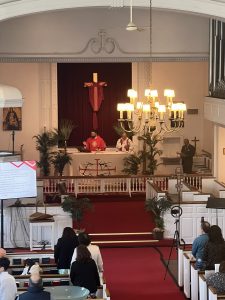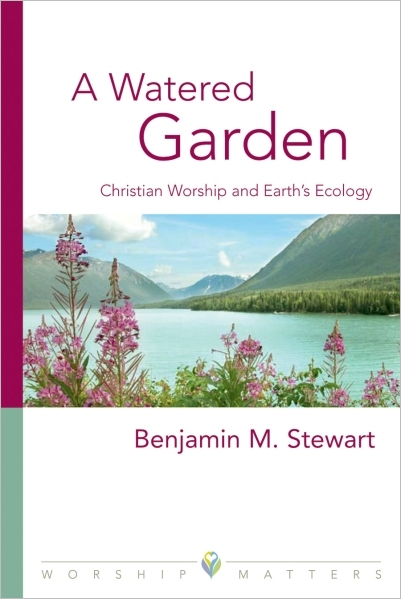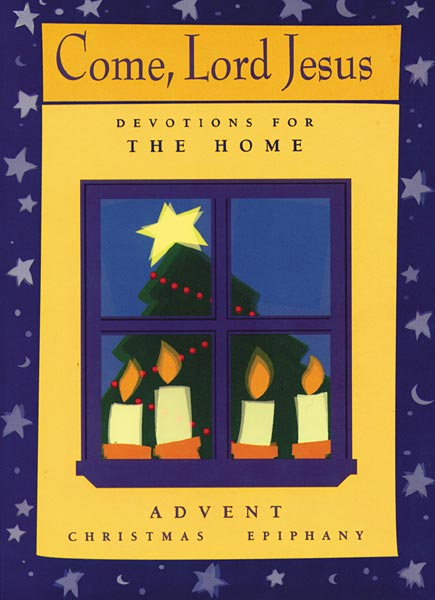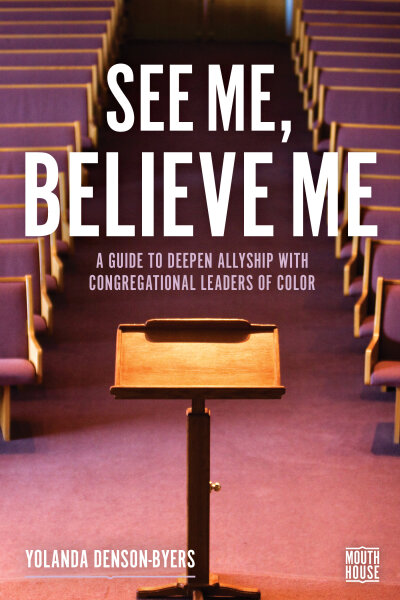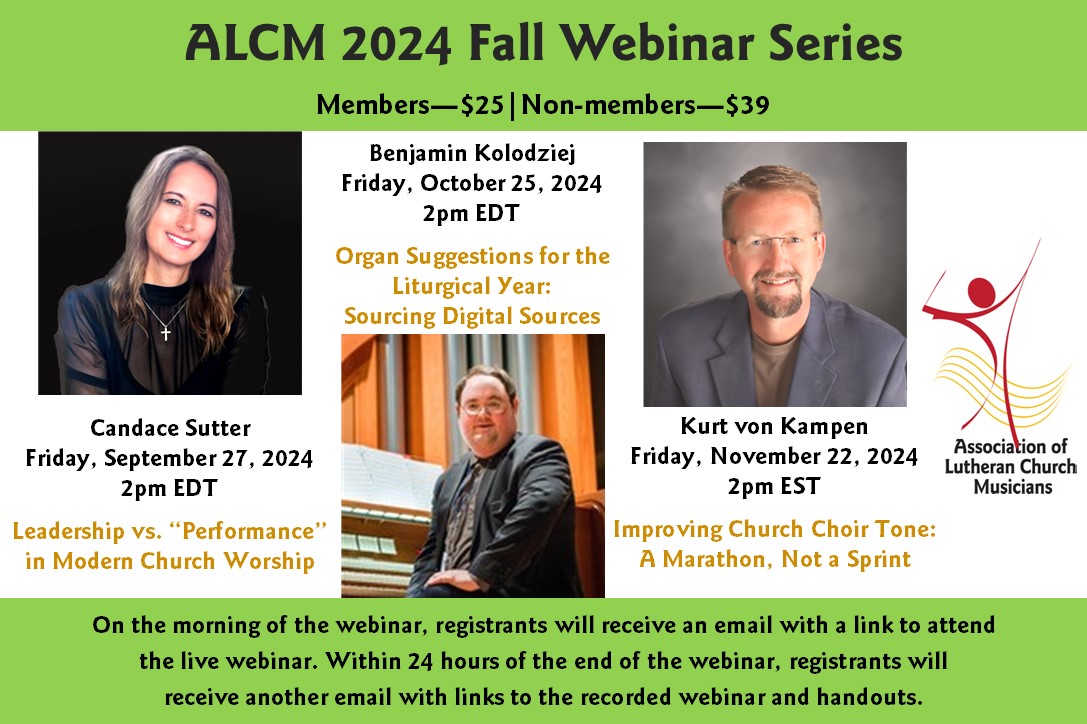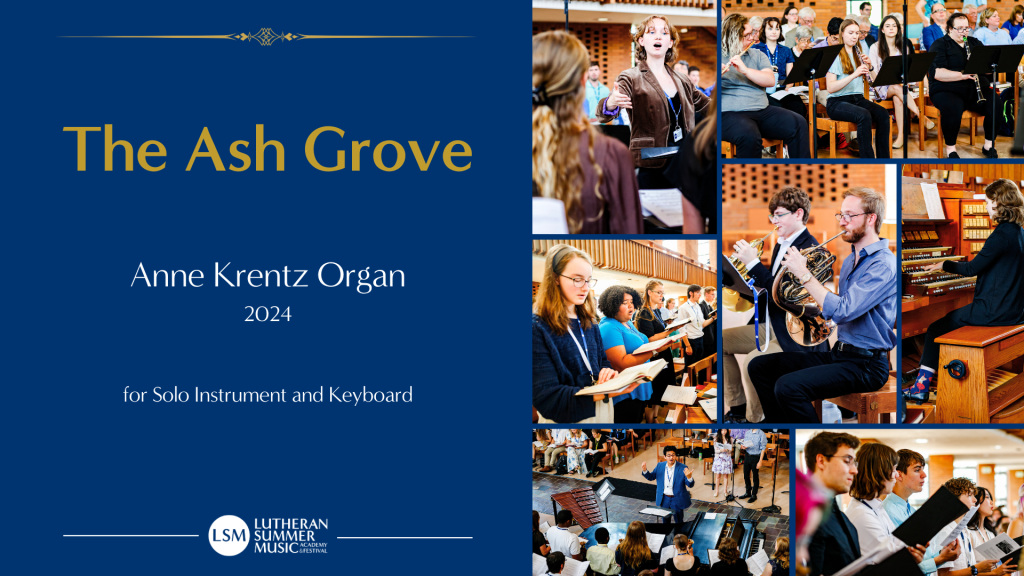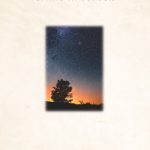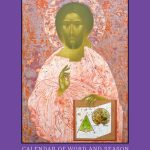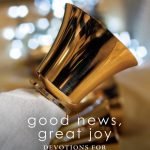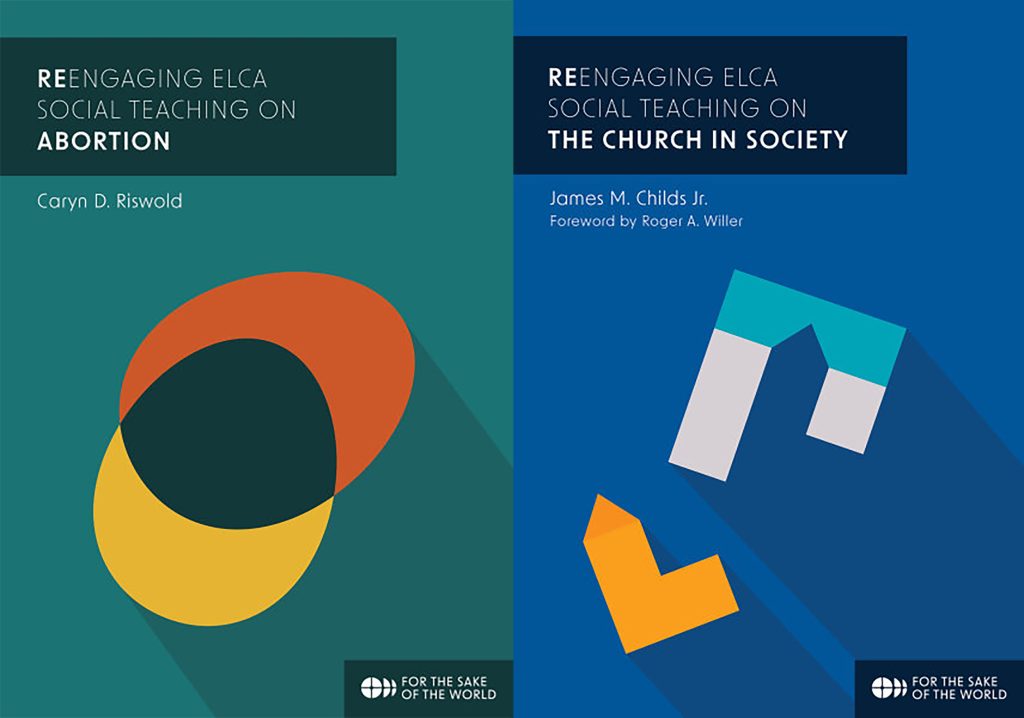Each month ELCA Worship highlights resources and events from other organizations and institutions. These Lutheran and ecumenical partner organizations work alongside the ELCA to support worship leaders, worship planners, musicians, and all who care about the worship of the church.
Transforming and connecting lives through faith and music since 1981.
2024 LSM Musical Advent Calendar
Join Lutheran Summer Music, December 1-24, for their fourth-annual Musical Advent Calendar–a daily moment of music and reflection on their Facebook, Instagram, and YouTube pages as well as archived on their website at LSMacademy.org/acal
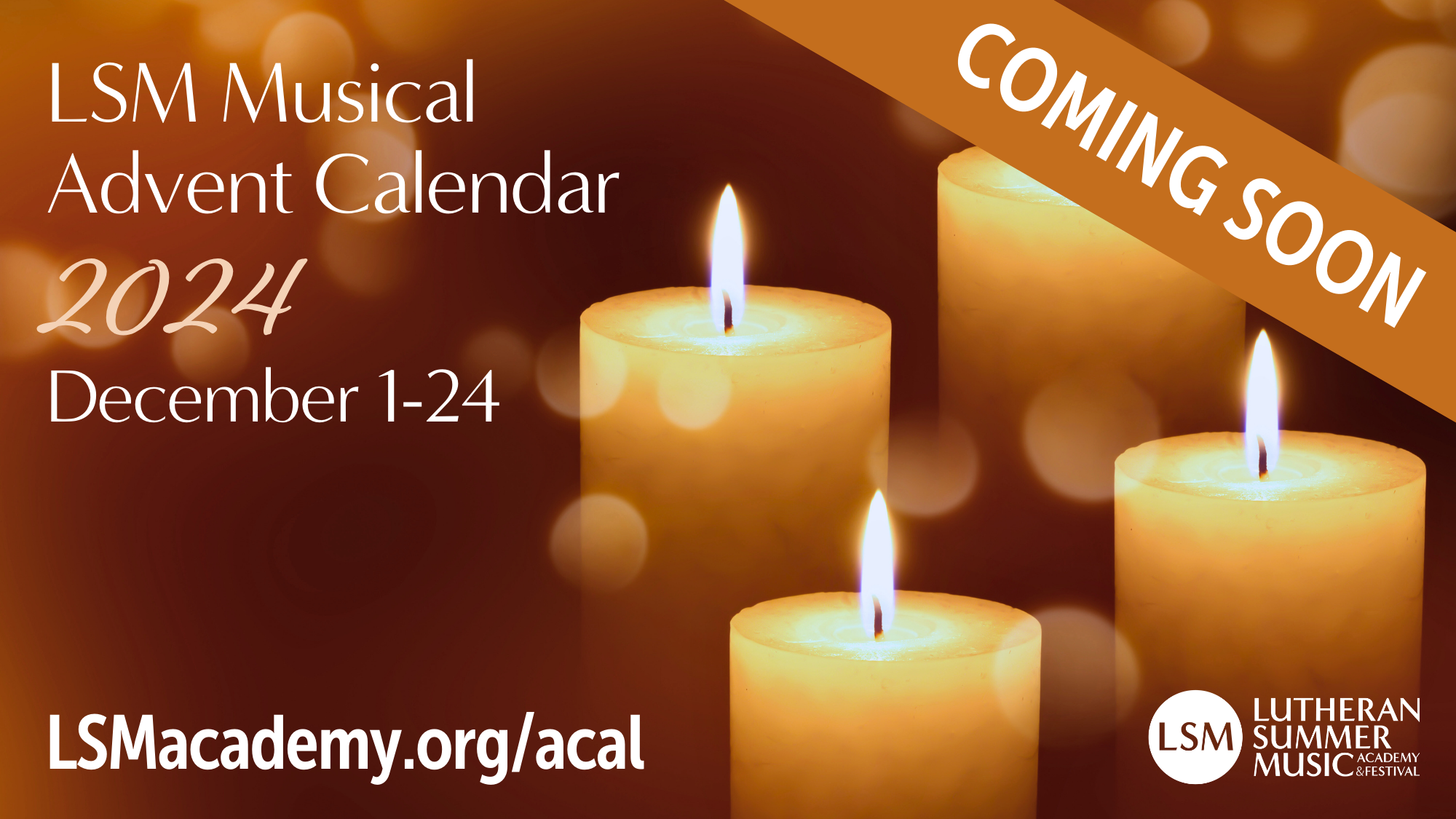
ALCM nurtures and equips musicians to serve and lead the church’s song.
The conference theme, For all that is to be, describes our effort to equip people in all stages of their love for music of the church. Whether you are a volunteer, part-time or full-time employed, a student, newly employed, or retired, this conference will nurture your passion for the many ways in which we continue to share the gospel message.
Now is a great time to register and get the best rate. If you get continuing education funds, maybe you have some money left in your budget this year that you can put toward this opportunity. Registration is live – visit the conference website to register now. We look forward to seeing you in Raleigh!
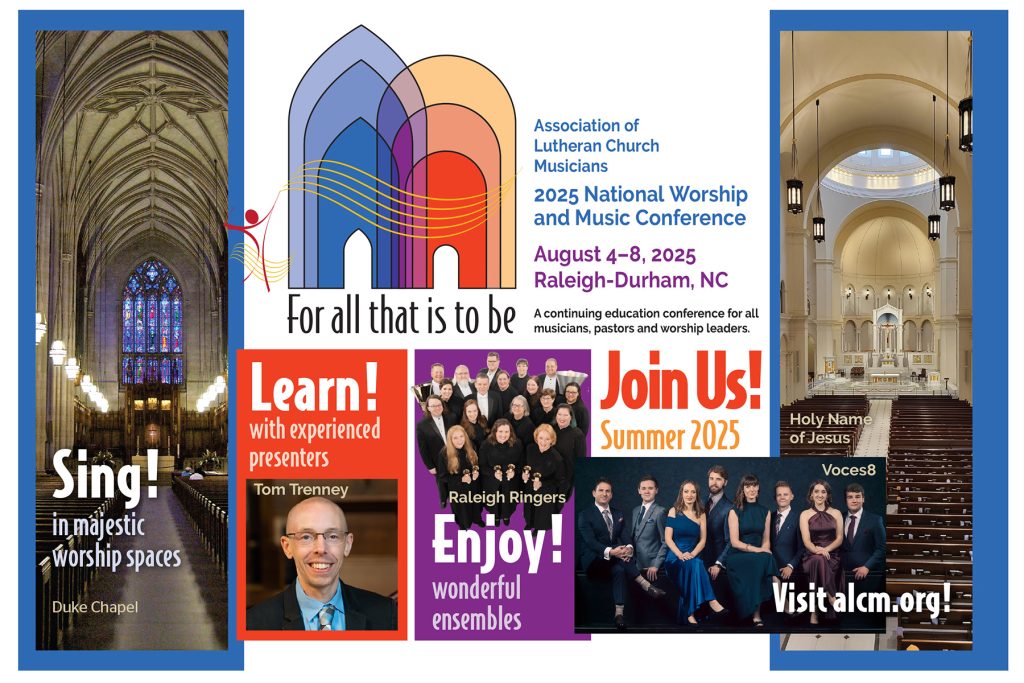
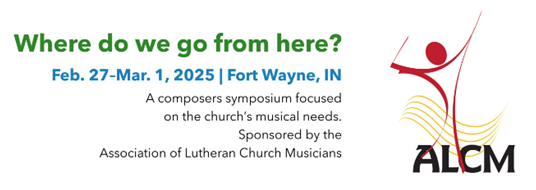
ALCM is excited to offer a composers symposium, Where Do We Go from Here, to stimulate conversation among composers regarding our efforts to be faithful, creative, and nurturing stewards of the church’s song – even where gatherings have limited human and material resources. Registrants will also have the opportunity to explore newer music software. For a more detailed look, visit the symposium website. More information is added regularly, so check back often for more.
ALCM is especially grateful to the hosts for this symposium, Bob Hobby and Trinity English Lutheran Church. Generous donations from the Fred Jackisch Memorial Fund as well as from Trinity English Lutheran have helped to maximize the benefits of attendance while minimizing costs to registrants. Registration rates go up after January 14th. Those who register for both the 2025 Symposium and Raleigh-Durham Conference will receive a $70 dollar refund at the close of the conference.
The mission of The Hymn Society in the United States and Canada is to encourage, promote, and enliven congregational singing. The Center for Congregational Song is the resource and programmatic arm of The Hymn Society, connecting resources, leading deep and vital conversations about the church’s song, and collaborating with our partners.
Back in 2020, The Center for Congregational Song hosted a 12-hour broadcast of music and pastoral moments on Election Day in an effort to provide a space for peace in a time of great anxiety. Four years later, the political discourse in the United States is not all that different, and, in some ways, even more charged than it was before. If you find yourself in need of a break from the news, we invite you to recharge by watching our broadcast from four years ago.

An ecumenical conference on liturgical renewal for the church today.
Rites of Passage: Engaging Occasional Practitioners in a Secular Age
Valparaiso, Ind., April 28–30, 2025
The American religious landscape is characterized by declining participation in religious institutions, increasing uncertainty about matters of faith, and a growing population identifying as non-religious. Nevertheless, many people continue to turn to churches at some of the most significant moments in their lives—such as the birth of a child or the loss of a loved one—and many others show up to support them. At last year’s Institute, Rev. Dr. Sarah Kathleen Johnson introduced the idea of occasional religious practice to describe a way of relating to religion that is characterized by participation in religious practices occasionally rather than routinely, most often in connection with certain types of occasions, including holidays, life transitions, and times of crisis. She encouraged us not to rush to judge occasional practitioners’ lack of involvement or to come to hasty conclusions about why they are seeking out these practices but instead to listen to and learn from them.
Most of our planning resources are directed at the Sunday assembly. Yet, baptisms, weddings, and funerals are liturgical events rich in their potential for service and outreach. How might we more fully consider the possibilities of these occasions to be better prepared to serve a decreasingly churched culture?
Sign up for our monthly newsletter to stay up to date on the 2025 conference.
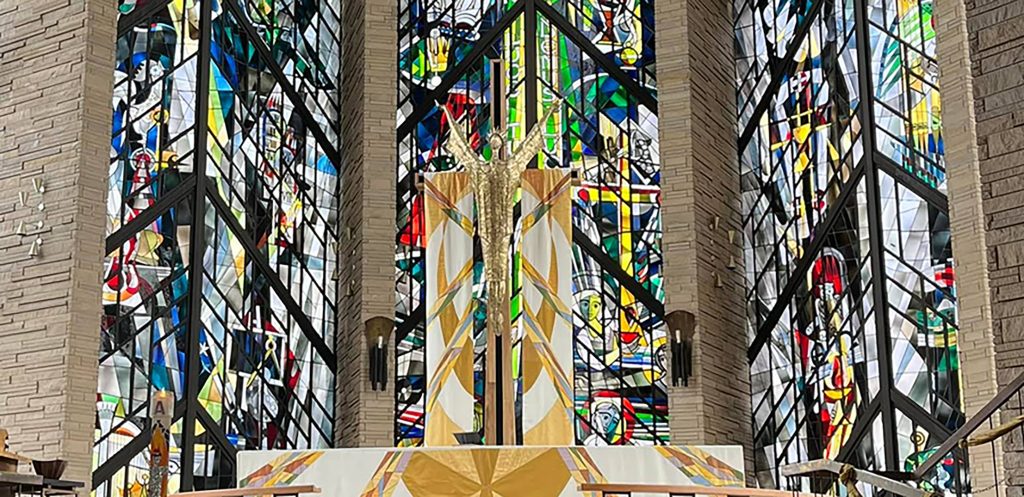

Music that Makes Community (MMC) practices communal song-sharing that inspires deep spiritual connection, brave shared leadership, and sparks the possibility of transformation in our world.
Music that Makes Community invites you to consider the following events and resources for continuing education, community building, professional development, and celebrating this practice of paperless communal song-sharing.
Communities around the nation gather together to sing and build bridges of connection. Be sure to go to our events pages for information on Workshops and Retreats, Community Events and other gatherings in your area. Join one of these regular groups, if they aree near you or start your own (we can help you with that; just reach out!):
Albuquerque, New Mexico – 1st Tuesdays
Brownsburg, Indiana – 1st Tuesdays
Chicago, Illinois – 3rd Wednesdays
Ellensburg, Washington – 2nd Thursdays
Minneapolis-St. Paul, Minnesota – varies
The Center for Church Music is a place where one can tap into an expansive library of resources and perspectives on the music and art of the church, with a focus on a Lutheran context.
“Profiles in American Lutheran Church Music” presents video conversations with prominent church musicians “Beyond the Children’s Choir: Focused Experiences for Children in Worship: Emily Woock, Elmhurst Ill., Oct. 2023 and the Rev Paul D. Weber, (interviewed by Barry Bobb, April 2024) as well as many other Lutheran Church musicians.

Augsburg Fortress is the publishing ministry of the Evangelical Lutheran Church in America
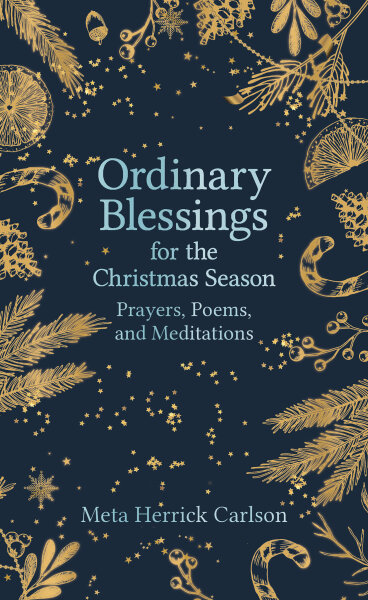
Ordinary Blessings for the Christmas Season
For so many of us, the season leading up to Christmas is a time of overwhelming expectations, busyness, and often grief. From gifted poet and empathetic pastor Meta Herrick Carlson comes a beautiful collection of prayers, poems, and meditations to help us recognize the holy beneath the hustle and hibernation of the holidays. The book includes blessings for all the ordinary and not-so-ordinary moments of the season, like addressing Christmas cards, setting boundaries with family, shoveling snow, and the first Christmas without a loved one. Also included are blessings dedicated to beloved nativity characters like Mary and the magi, blessings for each of the twelve days of Christm as, and a beautiful collection of sacred-word-inspired blessings that readers can use as daily Advent readings. Let this beautiful little book be a reminder that the holy can be found in the routine and the ritual of the holiday season.
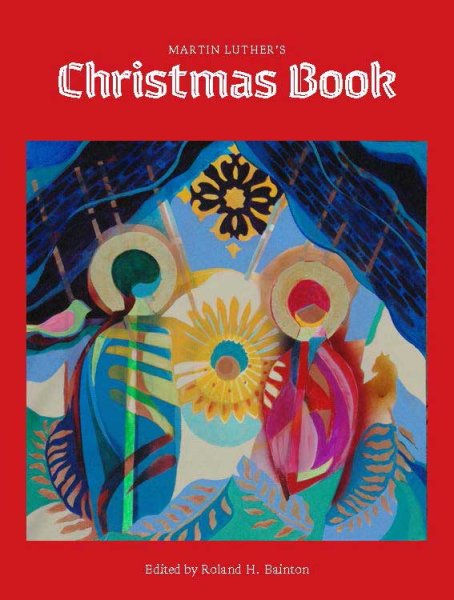
Martin Luther’s Christmas Book
Martin Luther’s conception of the Nativity found expression in sermon, song, and art. This beautiful gift edition of a classic collection combines all three. In thirty compelling Christmas excerpts from his sermons, Luther vividly portrays the human realism of the Nativity: Mary’s distress at giving birth with no midwife or water; Joseph’s misgivings; the Wise Men’s perplexity; and Herod’s cunning. Throughout, Luther suggests the question: If we had lived in Bethlehem when Jesus was born, would we have believed that this newborn baby was God in human form? With these musings and more, Luther reminds us that Christmas is a year-round mission for caring for those in need. Nine elegant illustrations by Luther’s contemporaries—including four by noted engraver Albrecht Durer—capture timeless scenes from the Christmas story.
Washed and Welcome Living the Promises of Baptism: 101 ideas for parents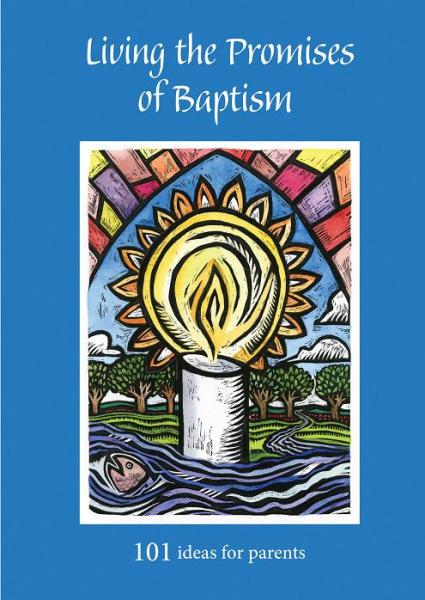
In the service of baptism, parents and guardians of the baptized are asked, “Do you promise to help your child grow in the Christiam faith and life?” The answer of “I/We do” affirms that this newly baptized member of the church will continue to learn about and experience faithful living. But how does one do that? The 80 pages of Washed and Welcome are filled with concrete ideas for celebrating with your children the gifts of baptism in daily living. Meals, bedtime, play, seasons, milestones, transitions—all these occasions and more become opportunities for practicing faith. The ideas in Living the Promises of Baptism are for children from infancy through the upper elementary years. Whether your child is a newborn, a preteen, or somewhere in between, you will find yourself returning to this book again and again for support, encouragement, and inspiration.
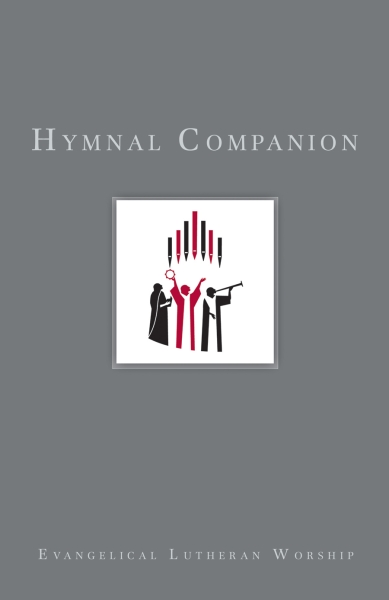
ELW Hymnal Companion
This Hymnal Companion to Evangelical Lutheran Worship will help pastors, church musicians, and others who plan the assembly to understand the context, origins, and characters of the hymn text and tunes, allowing them to craft cohesive and intentional services. Comprehensive and practical, this essential reference resource also contains a glossary, chronologies, bibliography, and several indexes to provide additional help for the user. The companion is a valuable resource for all who care about the church’s song.
Also available is Assembly Song Companion to All Creation Sings, the hymnal companion to the recent All Creation Sings ELW supplement.”
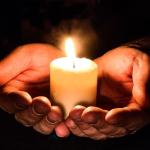 “For what shall we pray?” is a weekly post inviting individuals, groups, and congregations to lift up our world in prayer. This resource is prepared by a variety of leaders in the ELCA and includes prayer prompts, upcoming events and observances, and prayer suggestions from existing denominational worship materials. You are encouraged to use these resources as a starting point, and to adapt and add other concerns from your local context. More information about this resource can be found here.
“For what shall we pray?” is a weekly post inviting individuals, groups, and congregations to lift up our world in prayer. This resource is prepared by a variety of leaders in the ELCA and includes prayer prompts, upcoming events and observances, and prayer suggestions from existing denominational worship materials. You are encouraged to use these resources as a starting point, and to adapt and add other concerns from your local context. More information about this resource can be found here.
 The Power of Language in Worship
The Power of Language in Worship